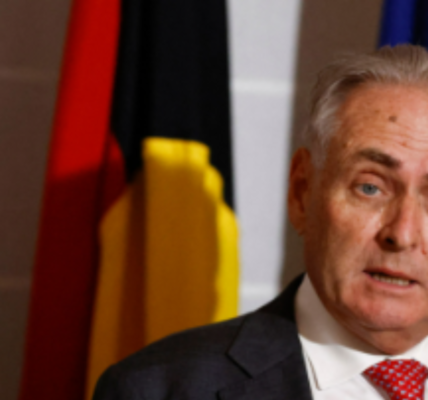Joseph Robinette Biden Jr., the 46th President of the United States, emerged victorious in the 2020 Presidential Election, defeating incumbent President Donald Trump. At 78 years old, Biden took the oath of office on January 20, 2021, alongside Kamala Harris, who made history as the 49th Vice President of the United States.
In his first hours in office, President Biden wasted no time in signaling a departure from the policies of the previous administration. He swiftly signed 17 executive orders aimed at undoing what his aides deemed as the ‘greatest damage’ caused by the Trump administration.

Early Life and Education
Born on November 20, 1942, in Scranton, Pennsylvania, Joe Biden’s journey from humble beginnings to the pinnacle of American politics is one of resilience and determination. Raised by Catherine Eugenia “Jean” Biden and Joseph Robinette Biden Sr., Biden’s upbringing was marked by financial struggle after his father’s initial prosperity gave way to economic decline. Despite the challenges, Biden excelled academically, serving as class president during his junior and senior years of high school.
In 1965, Biden earned a bachelor’s degree with a double major in History and Political Science, along with a minor in English. Overcoming a childhood stammer, he pursued further education, obtaining a Juris Doctor from Syracuse University College of Law in 1968. Biden was admitted to the Delaware bar the following year, embarking on a career in law and public service.
Career Trajectory
Biden’s foray into politics began with a clerkship at a Wilmington law firm, where his early leanings leaned toward the Republican Party. However, his alignment shifted as he embraced the Democratic platform, eventually running for office himself. In 1970, he secured a seat on the New Castle County Council, championing liberal causes and earning the trust of his constituents.
In 1972, Biden made history by defeating Republican incumbent J. Caleb Boggs to become the junior U.S. senator from Delaware. Despite facing daunting odds, including a meager campaign budget, Biden’s grassroots approach and familial support propelled him to victory.
Throughout his tenure in the Senate, Biden established himself as a pragmatic lawmaker, navigating the complexities of policy-making with a keen eye for bipartisanship. He chaired several influential committees, including the Senate Committee on the Judiciary and the Senate Foreign Relations Committee, leaving an indelible mark on key legislative initiatives.
Presidential Aspirations and Achievements
Although Biden’s presidential ambitions were tempered by setbacks, including his withdrawal from the 1988 Democratic Presidential nomination race, his resilience never waned. In 2008, he answered the call to serve as vice president under Barack Obama, a role he reprised in the 2012 Presidential Election, culminating in two historic terms in office.
In the 2020 Presidential Election, Biden’s unwavering commitment to unity and progress resonated with voters across the nation, propelling him to victory over incumbent President Trump. With his running mate, Kamala Harris, by his side, Biden made history as the first candidate to defeat a sitting president since Bill Clinton in 1992.
Personal Life and Resilience
Biden’s personal life has been marked by triumph and tragedy. His first marriage to Neilia Hunter tragically ended in 1972, when she and their daughter, Naomi, were killed in a car accident. Undeterred by grief, Biden found love again with Jill Tracy Jacobs, whom he married in 1977. Together, they raised three children, forging a bond that would endure the trials of public life.
As President Biden embarks on this new chapter in American history, his journey serves as a testament to the resilience of the human spirit and the enduring promise of democracy. With a legacy defined by leadership, compassion, and a steadfast commitment to the American people, Joseph R. Biden Jr. stands poised to guide the nation toward a brighter future.





